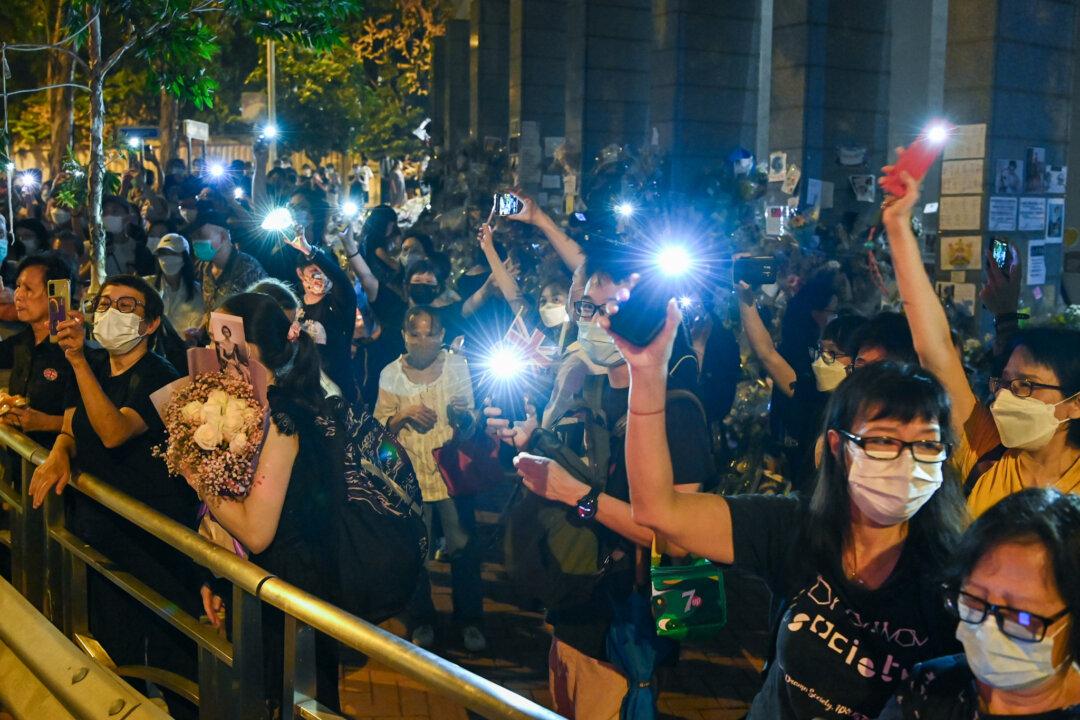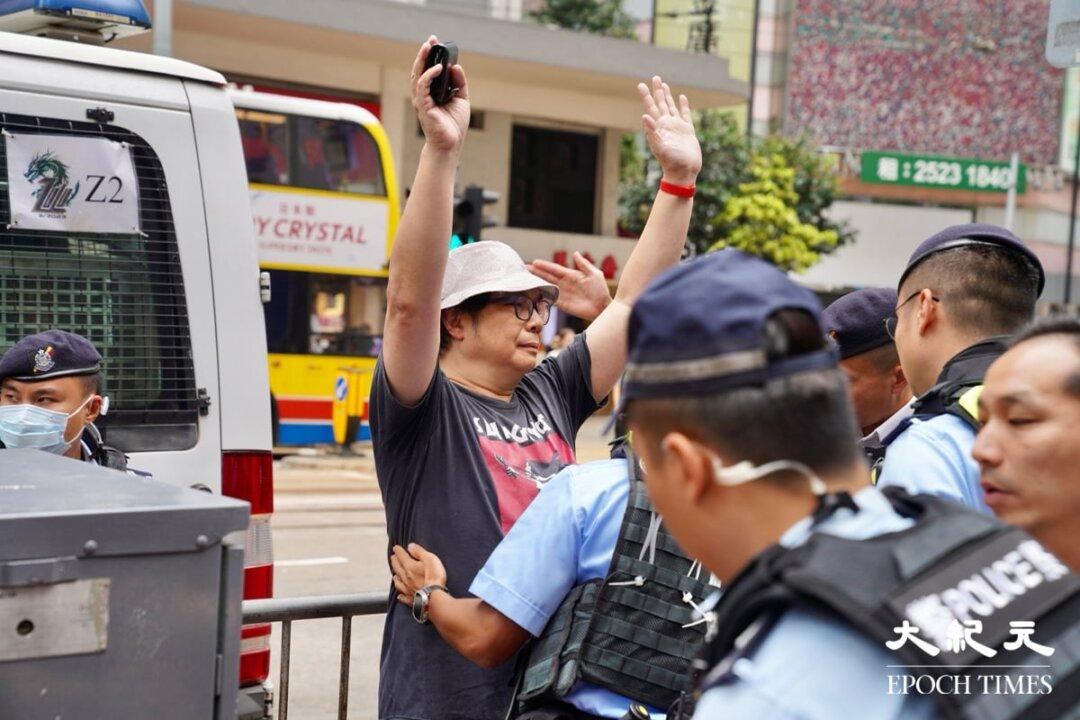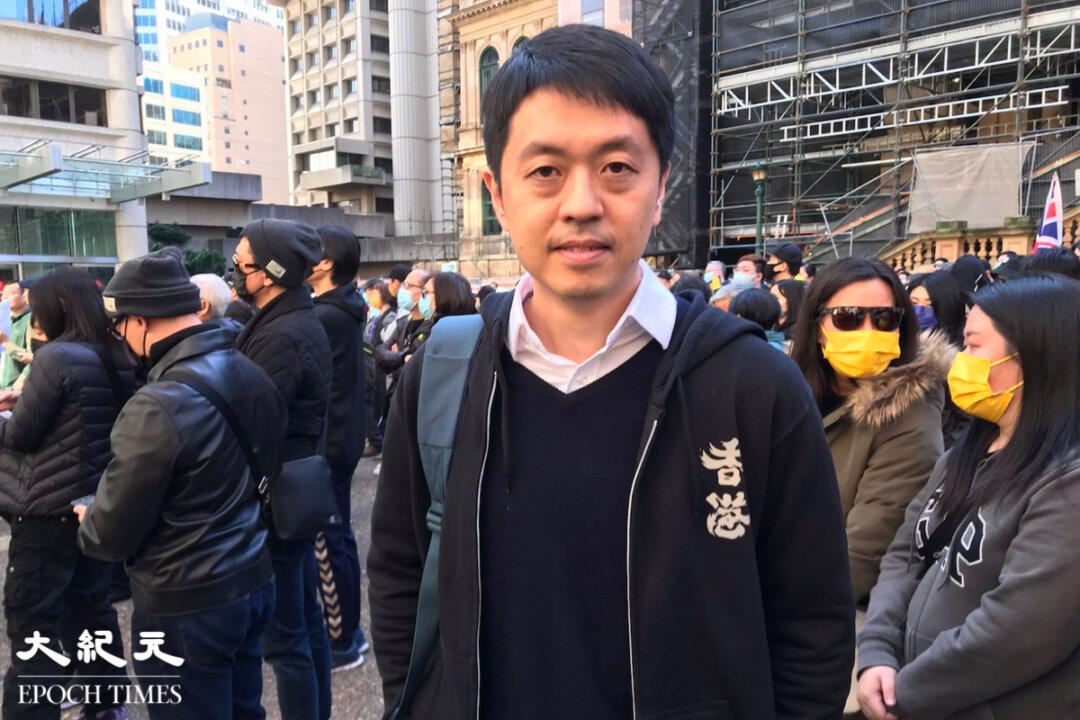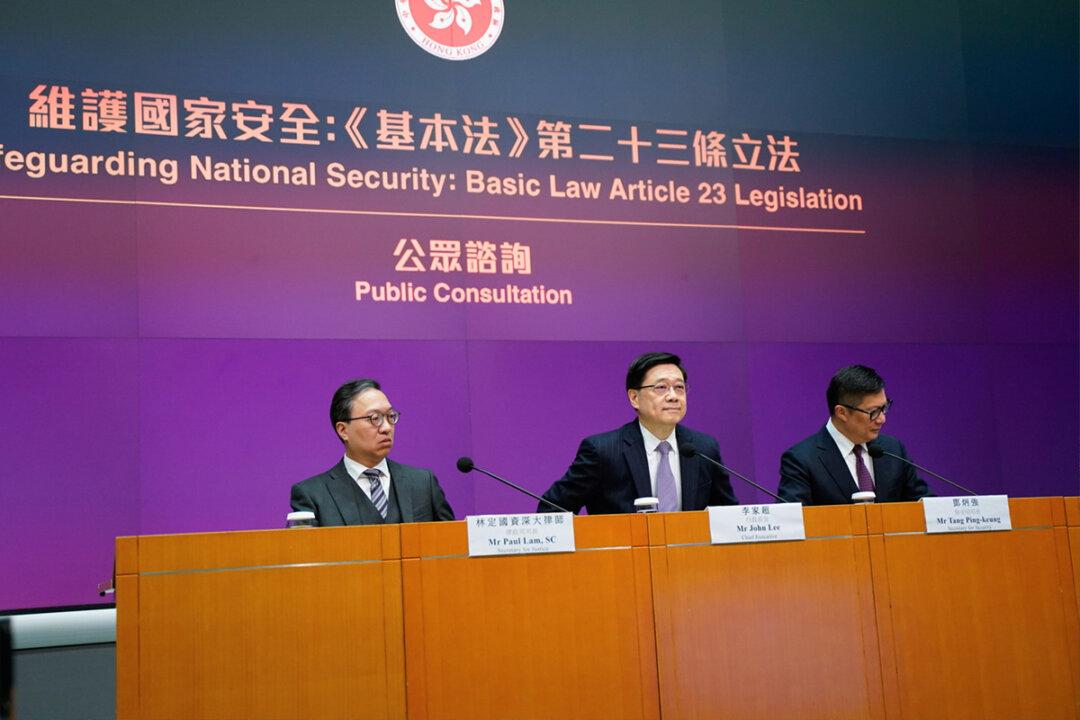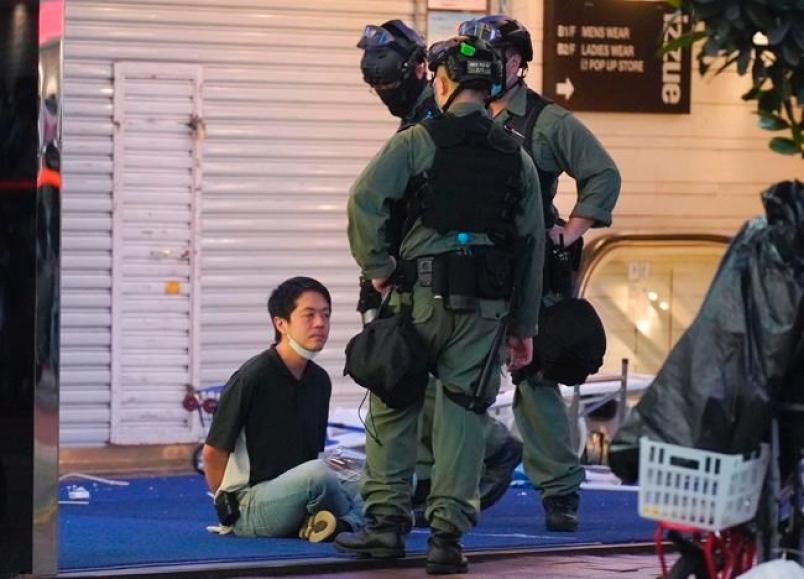Sept. 19 was the day of the state funeral of the late Queen Elizabeth II. The British Consulate in Hong Kong continued to open an area for the public to mourn the Queen, and the site was constantly crowded from morning to dusk and into the night. A man playing the British national anthem was arrested by police. Police alleged he was acting with seditious intent and is being detained for investigation.
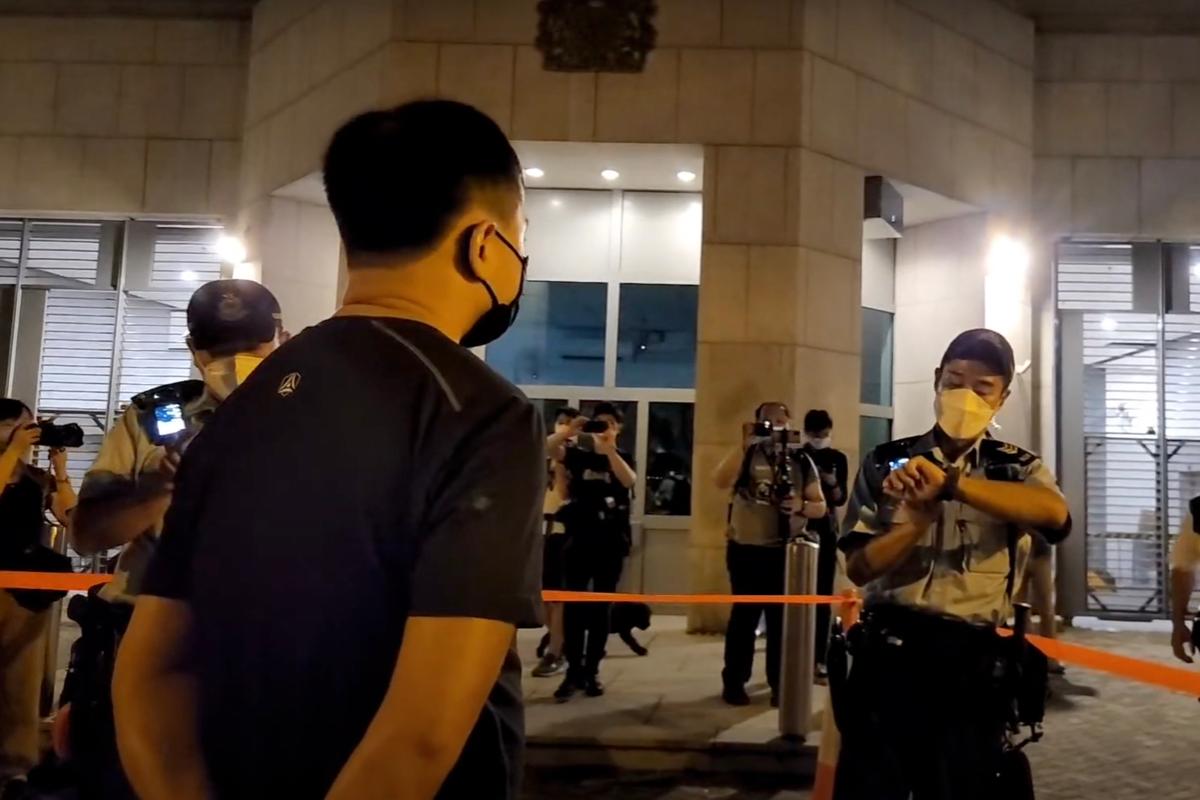
Police took into custody a man who was playing the British anthem with his harmonica outside the British Consulate General in Hong Kong on Sept. 19, 2022. Doris Li/The Epoch Times
